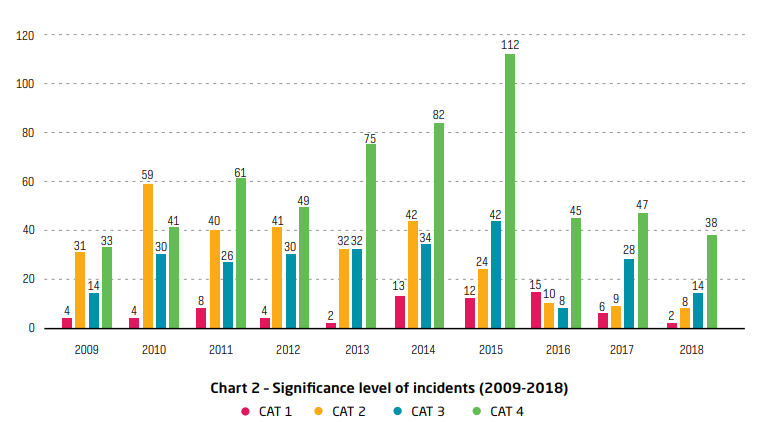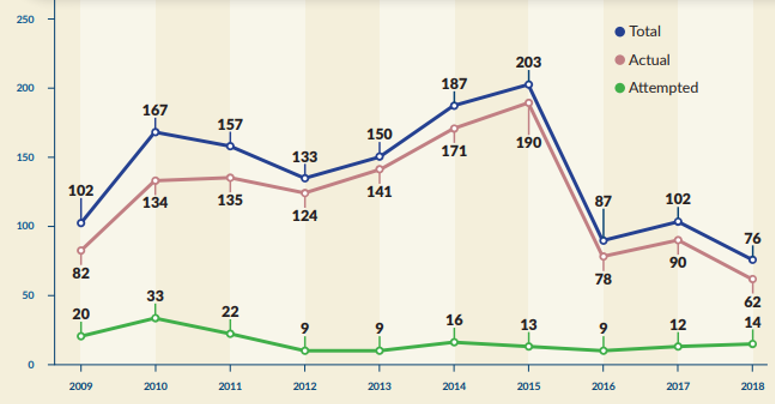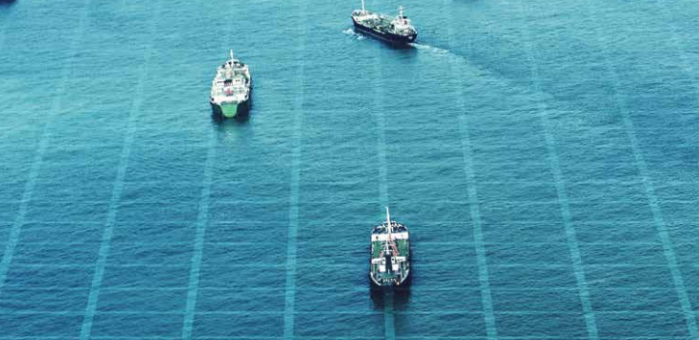Entering the 13th year of its establishment, ReCAAP ISC has been a key contributor in global efforts to restrain the ever-evolving maritime piracy landscape in Asia. As the first government-to-government regional agreement against piracy, one of its notable achievements is sharing figures to raise awareness. But to what extent is this feedback properly accepted by the industry? Is it possible sometimes that we only look at numbers and ignore the actual meaning?
Established in 2006, the Regional Cooperation Agreement on Combating Piracy and Armed Robbery against Ships in Asia (ReCAAP) is the first regional government-to-government agreement to boost cooperation against piracy and armed robbery against ships in Asia. Based in Singapore and managed by a governing council, today it counts 20 contracting parties, including Europe, Australia, and the US.
Key areas of action
The mission of ReCAAP is to enhance regional cooperation against piracy, through three pillars of activities:
- Information sharing: Information sharing has been the primary focus of ReCAAP’s work, through the ReCAAP Information Sharing Centre (ISC), aiming to enable authorities to encounter the issue more effectively, as well as shipowners and masters to plan their voyages accordingly when transiting high risk areas. Namely, information sharing refers to:
- the establishment of a 24/7 secure web-based Information Sharing Network (IFN) in 2006 facilitating communication between ReCAAP ISC and ReCAAP Focal Points
- the launch of an IFN mobile app in 2014 to enable greater accessibility to incident reporting
- the publication of periodical and special reports, timely alerts and updates, as well as forums and conferences as a result from the timely and accurate reporting by Focal Points.
ReCAAP ISC cooperates on 24/7 basis with Focal Points of 20 member states, which are key components to the anti-piracy work, as they are closely managing piracy in territorial waters and form a pillar of the effective information exchange.
- Capacity building: Workshops and meetings are aimed to strengthen Focal Points Network and boost situation awareness and education.
- Cooperative arrangements: ReCAAP ISC is working through an extensive network of partnerships, enabling collaboration on training programmes and joint projects on measures to prevent and reduce piracy, as well as information exchange and mutual support.
To improve Incident Severity awareness ReCAAP is using relevant KPIs
An innovative aspect of ReCAAP’s work is the classification of incidents per severity. To provide some perspective, ReCAAP ISC evaluates the significance of each incident in terms of two factors:
- the level of violence (type of weapons used, treatment of the crew, number of pirates/robbers engaged in an attack) and
- the economic loss incurred (type of the property taken from the ship).
Namely:
CAT 1 – the most severe incidents:
- They involve more than 9 men as perpetrators
- They are mostly armed with guns and knives
- The crew is likely to suffer some form of injury or physical violence such as being assaulted or tied up or threatened
- The ship is either hijacked or the cargo onboard is stolen.
CAT 2
- Most of these involve 4-9 men
- They are likely to be armed with knives/machetes and in 1/4 of the incidents, armed with guns.
- The crew is likely to be threatened or held hostage temporarily. In a few cases, the crew suffers some form of injury or physical violence, but less severe in nature than CAT 1 incidents.
- Perpetrators may steal the crew’s cash and ship’s property including engine spares.
CAT 3
- These usually involve groups of 1-6 men.
- At times, perpetrators are armed with knives/machetes/ others or other items such as sticks, rods, bats etc.
- The crew is not harmed, although there remains a small possibility that the crew could be subject to duress during the incident but not harmed physically.
- In almost half of the CAT 3 incidents, the perpetrators were unable to steal anything from the vessel, but in cases where losses were reported, stores and engine spares were the commonly targeted items.
CAT 4 – the less severe incidents
- More than half of CAT 4 incidents involve 1-3 men
- The perpetrators are not armed
- The crew is not harmed
- Perpetrators escape empty-handed.
Key observations
Recently-published figures for 2018 revealed a total of 76 incidents against ships in Asia through the year, comprising of 62 actual and 14 attempted incidents.
Notably, out of the 62 actual incidents, two were CAT 1 incidents, eight were CAT 2 incidents, 14 were CAT 3 incidents and 38 were CAT 4 incidents.
While 76 sounds remarkable, only two CAT 1 incidents and eight CAT 2 incidents were reported. Figures of CAT 1 and CAT 2 incidents reported in 2018 have been the lowest among the 10-year period.

Meanwhile, taking a look into figures for the 10-year reporting period of 2009-2018, CAT 4 incidents are generally at the top of the list, while CAT 1 at the bottom. More specifically, comparing numbers of 2015 (199 incidents) with 2016 (78 incidents), indicates on the one hand a significant drop in security related incidents, but on the other hand, an increase of severe incidents in 2016. On the same context, 2017 returned with an increase of incidents (90) compared to the previous year, but CAT 1 incidents were less than the half than in 2016!
2018 shows overall improvement
The situation in Asia has shown an overall improvement, with a 25% decrease from 2017 to 2018, and particularly a 31% decrease of actual incidents. Both the total number of incidents and number of actual incidents in 2018 are the lowest among the 10-year period of 2009-2018. There was also improvement at some ports and anchorages in 2018, compared to 2017.
Namely, from 2017 to 2018:
- A decrease was reported in incidents at Manila anchorages, Philippines, in South China Sea
- There was a decrease in the number of incidents of abduction of crew for ransom in the Sulu-Celebes Seas and waters off Eastern Sabah
- There was no theft of oil cargo in 2018
- However, more than 10 incidents were recorded at ports/ anchorages in Samarinda, East Kalimantan, Indonesia, and Chittagong, Bangladesh.
- There were also slight increases reported in Malaysia and Vietnam.

Key Considerations
In the meantime, either there is a decrease or an increase in the number of incidents, it always remains somehow unclear whether this is due to underreporting or it forms a true reflection of the current situation. This is why ReCAAP ISC constantly maintains its advice to crews to report all incidents to the nearest coastal Sate and flag State immediately, exercise vigilance and adopt relevant preventive measures taking reference from the Regional Guide to Counter Piracy and Armed Robbery Against Ships in Asia.



























































